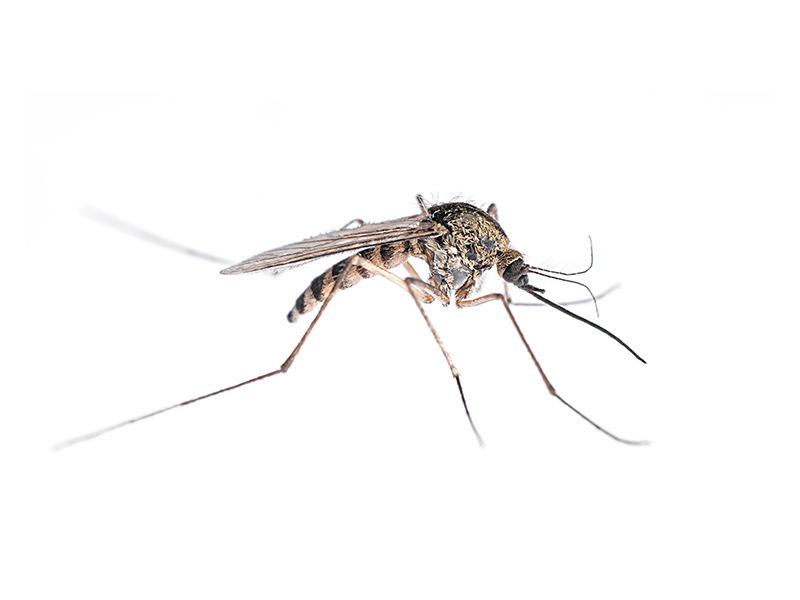Same-day and professional Pest Control for peace of mind.
Eco-Friendly Insect Control Approaches for Taking Care Of Wild Animals in Urban Areas
Urban areas usually find themselves at the crossway of human task and wildlife, resulting in special obstacles in parasite management. Eco-friendly approaches stress sustainable coexistence, utilizing strategies such as environment alteration and natural repellents to mitigate human-wildlife conflicts. These techniques not just protect the setting yet also enhance area involvement in wildlife management. As metropolitan populaces proceed to expand, understanding the dynamics of wild animals communications comes to be significantly crucial. What cutting-edge techniques can be executed to make certain both ecological balance and city safety and security? Discovering this inquiry reveals an engaging landscape of possible services.
Comprehending Urban Wildlife Characteristics
Comprehending Urban Wildlife Characteristics is crucial for establishing effective and eco-friendly parasite control methods. Urban areas are increasingly ending up being habitats for numerous wildlife types, driven by elements such as environment fragmentation, food schedule, and human infringement. Recognizing these characteristics enables a nuanced method to pest management that straightens with ecological concepts.
Urban wild animals often consists of species such as raccoons, squirrels, and birds, which adjust to city environments, locating niches in environment-friendly areas, parks, and also household locations. Their visibility can lead to conflicts with human beings, particularly when they exploit human resources for food and shelter. Understanding the habits and eco-friendly roles of these types notifies techniques that reduce adverse communications while advertising biodiversity.
In addition, acknowledging the interdependencies within urban ecological communities helps in recognizing crucial locations for environment preservation and remediation. This understanding adds to the development of integrated pest management (IPM) techniques that think about the ecological equilibrium, therefore reducing reliance on hazardous chemicals. By fostering coexistence in between people and urban wildlife, cities can produce healthier atmospheres that benefit both locals and local communities, leading the way for sustainable urban living.
All-natural Repellents and Deterrents
All-natural repellents and deterrents use a lasting choice to standard parasite control approaches by taking advantage of the power of nature to keep unwanted varieties away. These eco-friendly options generally utilize plant-based ingredients, crucial oils, and various other normally taking place substances that deter pests without harming the setting.
One effective all-natural repellent is peppermint oil, which is understood to push back rodents and insects. Its strong scent is undesirable to lots of bugs, making it a popular selection for city setups. Similarly, vinegar and citrus peels can work as deterrents, as their solid odors are typically uninviting to different wildlife.
Additionally, diatomaceous planet is an all-natural powder that can be spread in locations prone to parasite activity, efficiently dehydrating and hindering bugs without posing threats to non-target species. In addition, garlic sprays and neem oil are acknowledged for their ability to drive away try this website a vast array of bugs, including both bugs and bigger wild animals.
Carrying out these all-natural repellents not only minimizes dependence on chemical pesticides yet also advertises a much healthier urban environment, fostering a more balanced coexistence between human beings and wildlife. By utilizing these approaches, metropolitan areas can properly manage bug populaces while decreasing ecological impact.
Habitat Alteration Techniques
Reliable environment adjustment strategies play a critical function in lasting pest management by modifying the atmosphere to make it less favorable to pest infestations. By comprehending the environmental dynamics of city areas, residential property proprietors can implement calculated alterations that prevent insects while promoting biodiversity.
(Termite Control)One primary method entails maintaining proper hygiene. This includes routine waste elimination, securing garbage can, and getting rid of standing water to decrease breeding websites for pests and rodents. Furthermore, landscape design practices such as selecting indigenous plants can enhance eco-friendly equilibrium, offering environments for beneficial organisms while reducing resources for bugs.
An additional important approach is to secure access factors in buildings. Inspecting and repairing cracks in structures, walls, and home windows can substantially minimize pest access. Producing physical barriers, such as fencings or plant buffers, can inhibit wild animals motion into human-inhabited locations.
Integrated Bug Management Practices
Structure upon habitat adjustment methods, incorporated bug management (IPM) techniques use a holistic strategy to regulating parasite populations while decreasing environmental influence. IPM integrates various methods, including organic, cultural, mechanical, and chemical controls, to attain effective parasite administration.
Organic control includes the introduction of all-natural predators or bloodsuckers to reduce bug populaces. Social practices, such as plant turning and cleanliness, interfere with pest life cycles and reduce their environments - Pest control service. Mechanical controls, like traps and obstacles, offer prompt relief from bug stress without chemical treatment
Chemical controls are made use of as a last hotel, focusing on targeted applications that restrict damage to non-target varieties and the environment. The choice of eco-friendly pesticides, when required, is indispensable to the IPM structure. In addition, keeping an eye on parasite populations and analyzing prospective damage aids educate decision-making, guaranteeing that interventions are prompt and effective.
Area Participation and Education

(Wasp removal Port Charlotte)Workshops and educational sessions can equip citizens with expertise concerning native types, environment preservation, and efficient safe insect administration methods. Partnership with institutions, local companies, and government agencies additionally boosts educational outreach, guaranteeing that crucial information reaches diverse audiences.
Furthermore, community-led efforts, such as community clean-up days and habitat repair tasks, not just advertise biodiversity yet additionally reinforce area connections. Pest Control. By motivating citizens to share their experiences and observations, neighborhoods can establish targeted techniques that deal with particular regional bug problems
Integrating comments from locals into pest monitoring intends makes it possible for an extra receptive and adaptive strategy to wildlife obstacles. Inevitably, informed and engaged areas are crucial to accomplishing long-term success in eco-friendly parasite control, causing healthier metropolitan environments that appreciate both human and ecological requirements.

Final Thought
In verdict, eco-friendly parasite control comes close to deal lasting services for taking care of city wild animals. By focusing on environment alteration, making use of all-natural repellents, and applying incorporated insect administration methods, neighborhoods can promote a harmonious coexistence with neighborhood fauna.